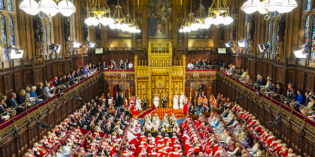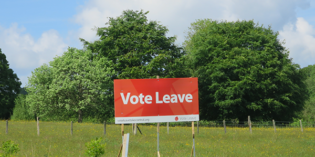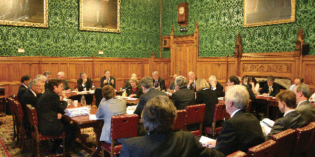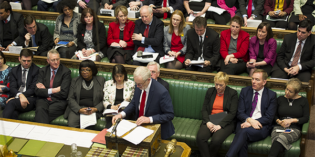
How undemocratic is the House of Lords?
For our 2018 Audit of UK Democracy, Sonali Campion, Sean Kippin and the Democratic Audit team examine how the UK’s deeply controversial current second chamber, the House of Lords, matches up to the criteria for liberal democracies with bi-cameral legislatures. Now an almost-all appointed Chamber, the Lords has achieved recent prominence on Brexit and tax credits by exerting some bipartisan influence moderating Commons proposals. However, its members remain creatures of patronage, and wholly unaccountable to the UK’s citizens. All parties except the Tories now support its replacement by an elected Senate. Increasingly only the Tories and Liberal Democrats are still appointing any peers – although there are also a fifth of peers who are ‘crossbenchers’, not taking a party whip.

Book Review | How Democracy Ends by David Runciman
Is democracy in crisis? In How Democracy Ends, David Runciman offers a compelling and convincing account of the state of democracy today, separating clear threats from alarmism in an accessible, well-written and thoughtful book. Sean Kippin recommends this to anyone seeking to understand our current predicament and the future paths for democracy – if any – ahead.

Patriotism, pessimism and politicians: understanding the vote to Leave
Ben Worthy reflects on the numerous overlapping reasons for the Brexit vote, the parallels with previous elections, and why a second vote risks exacerbating the anti-elite sentiments that underpinned it.

Membership organisations: how to boost numbers and activate engagement
To help organisations increase their number of active members, Kate Dommett and Sam Power explain how people decide whether to join (and remain in) an organisation, as well as what may be keeping them from participating in its activities.

How effective are the Commons’ two committee systems at scrutinising government policy-making?
In addition to their floor debates, a crucial role of legislatures is to scrutinise government law-making and policy implementation. The House of Commons looks at legislation via bill committees, and its select committees cover each of the Whitehall departments to scrutinise implementation. As part of the 2018 Audit of UK Democracy, Patrick Dunleavy and the Democratic Audit team consider how well current processes maintain parliamentary knowledge and scrutiny of the central state in the UK and England.

How democratic is the House of Commons? How effectively does it control the UK government and represent citizens?
How well does the House of Commons work via floor debates, questions to ministers and as a general means of scrutinising and passing legislation, and monitoring policy implementation? Has the return of a hung parliament since 2017 changed how the House of Commons functions as a legislature? As part of our forthcoming 2018 Audit of UK Democracy, Artemis Photiadou and Patrick Dunleavy consider if the traditional model of Parliament as primarily supporting a showcase political clash of government and opposition has changed to make the Commons a more effective focus of national debate or to create stronger control of the executive.

Conservative Brexiteers are offering unserious answers to serious questions in Northern Ireland: the consequences for the Union are significant
Proposals from backbench Brexiteer MPs as to how to resolve the border question in Northern Ireland fail to address the problem of maintaining a common set of standards with Ireland post-Brexit. Sean Swan argues that, given public opinion in England, a customs border in the Irish Sea, with divergence between Great Britain and Northern Ireland, is a likely outcome.

Book Review | English Nationalism: A Short History by Jeremy Black
In English Nationalism: A Short History, Jeremy Black offers a new history of English nationalism, exploring the distinctive aspects of England’s legal, institutional and religious structures and how these have shaped its national self-conception. While the work is an admirably thorough history, its neglect of the relationship between Brexit and Englishness makes it less convincing as a commentary on the role of English nationalism in contemporary debates surrounding identity, race, ethnicity, the Constitution and Europe, finds Ben Margulies.

Lessons from Ireland’s recent referendums: how deliberation helps inform voters
Ireland’s 2015 referendum on equal marriage and its 2018 one on abortion both had their origins in deliberative assemblies. But did such processes influence the result? The evidence suggests that the information and debate that came with these assemblies had an impact both on vote choice and turnout, writes Jane Suiter.





 Democratic Audit's core funding is provided by the Joseph Rowntree Charitable Trust. Additional funding is provided by the London School of Economics.
Democratic Audit's core funding is provided by the Joseph Rowntree Charitable Trust. Additional funding is provided by the London School of Economics.